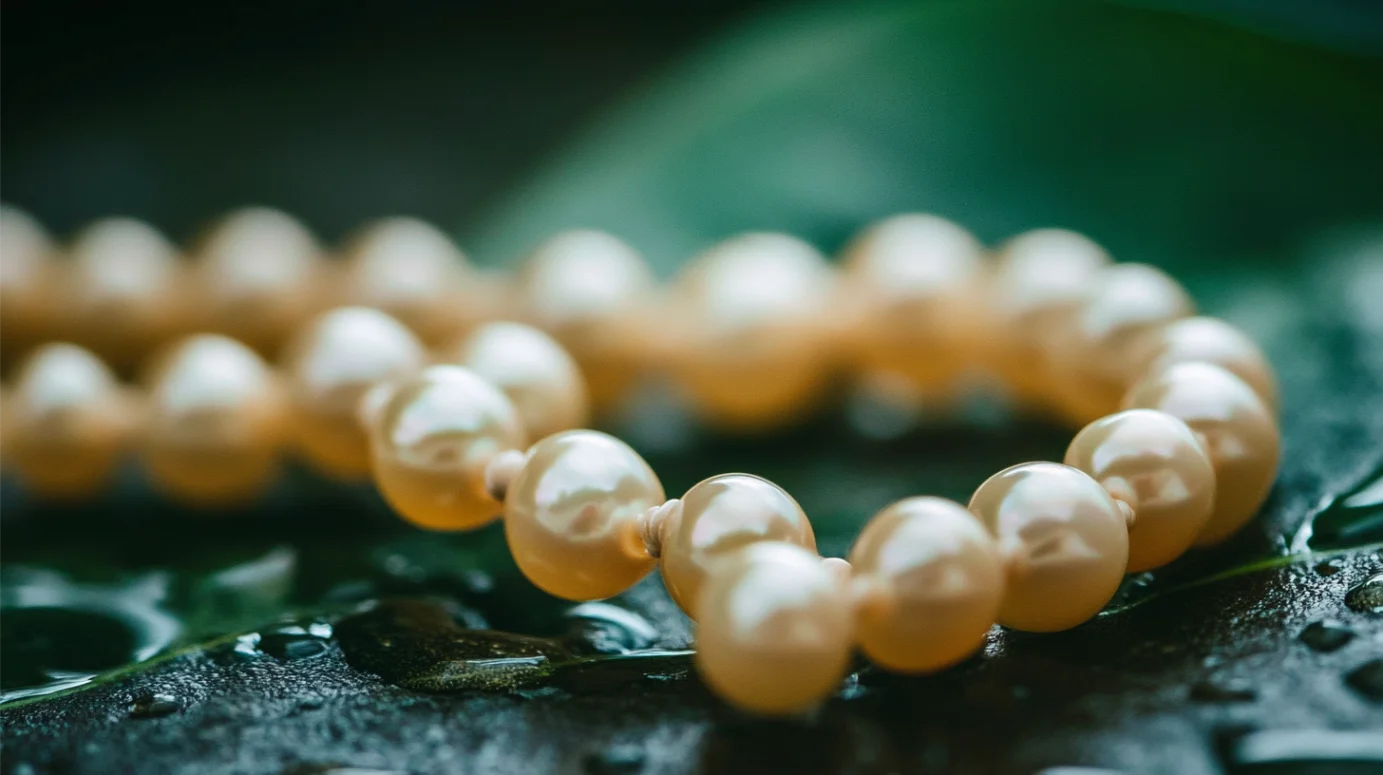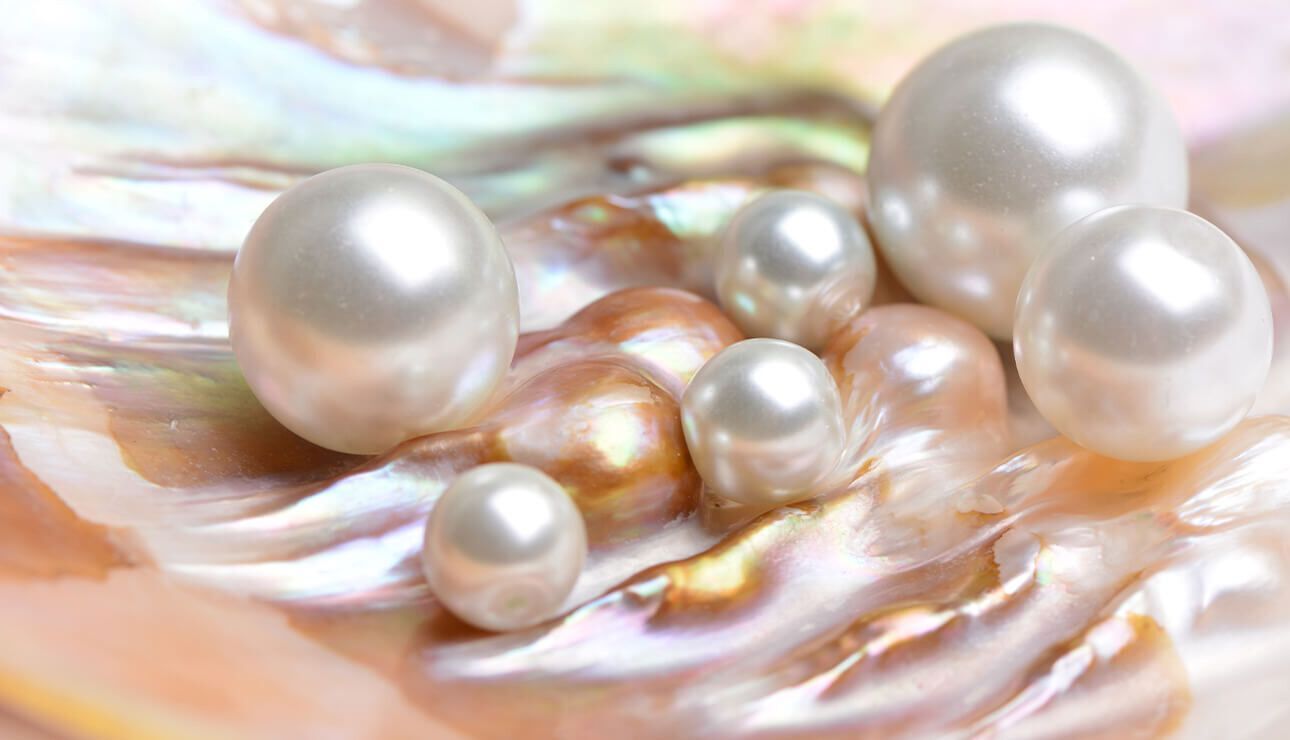Pearl: Spiritual Meaning and Symbolism

Pearls, those shiny and delicate jewels, originate from a fortunate accident. Specifically, they form when impurities become trapped inside a mollusk's shell. Once created, pearls vary in color based on factors such as water temperature, mineral levels, and the type of mollusk involved. Because of this extraordinary formation, many seek to understand the spiritual meaning of pearls, which typically symbolize purity, wisdom, and eternal life across different cultures.
Spiritual Meaning of Pearls
Pearls carry spiritual meanings that, while slightly different across cultures, share common themes. Primarily, they represent emotions, specifically feminine energy, and have notable connections with the Moon. Ancient Greece and Rome honored pearls as representations of femininity and fertility. In Islam, they symbolize angelic tears, indicating paradise and perfection. Conversely, Japan views pearls as the tears of nymphs, and Persians believe they form from rainbows after a storm.
Modern interpretations also reflect well-defined spiritual meanings attached to pearls. Let’s explore some of them.
1. Wealth, Prosperity, and Good Luck
Many divers invest their entire lives searching for pearls. Each discovery is considered an omen of good luck. Consequently, these unique treasures herald wealth and social status. Ancient Romans viewed pearls as harbingers of abundance and longevity, symbolizing both wealth and long, healthy lives.
For centuries, royal families have pursued gold pearls for their association with prosperity and success. In contemporary contexts, bold copper pearls signify industry and financial abundance. While gold remains highly coveted, these distinct creations can still invite financial stability into one's life.

2. Love and Affection
Many civilizations throughout history associated pearls uniquely with love. Ancient Greeks believed pearls were the tears of gods. Consequently, brides donned them during weddings to ward off marital tears. Tahitian mythology is particularly captivating; the God of Peace gifted a gorgeous black pearl to Princess Bora Bora, embodying eternal love.
Even today, white pearls are often linked with pure love and fertility, leading men to gift them as tokens of enduring affection. The pink pearl, with its unique hue, symbolizes joy, peace, and romantic luck across various cultures.
3. Innocence and Purity
Elegant white pearls exemplify not only beauty and innocence but also simplicity and purity. Ancient Romans regarded them as protective emblems against malicious spirits. Civilizations admired their lustrous quality, finding parallels between their glow and the soft illumination of the Moon over the ocean.
Today, white pearls embody profound meanings, linking heavily to beauty and sincerity. This aspect particularly resonates with marriage since brides often opt for them as jewelry, wishing for enduring happiness, commitment, and harmony in their relationships.

4. Balance, Harmony, and Inner Peace
Historically, many have claimed pearls offer balance, harmony, and inner peace. Typical high-quality pearls, like South Sea or Akoya varieties, emphasize these qualities. Spiritually, white pearls symbolize gifts from the ocean, ushering tranquillity and calmness to their wearers.
Black pearls have a special standing in ancient Chinese traditions, where they represent balance akin to Yin-Yang, along with good fortune. Golden pearls are linked to mindful decision-making and relaxation. Some rare green pearls also signify personal growth and renewal. For comfort and healing, consider chocolate pearls, while blue varieties symbolize trust and stability.
5. Wisdom and Experience
Various traditions link pearls with the insights gained through life experiences. They signify overcoming adversity to attain inner knowledge. Both Buddhism and Hinduism revere pearls for connecting individuals with divine energy.
In ancient China, black pearls were valued for their wisdom, while grey pearls epitomized self-discipline and dignity. Many cultures highlight white pearls as symbols of clarity, encouraging spiritual growth and enhanced intuition.

6. Creativity
Pearls are connected to the Sacral Chakra, fostering creativity and passion within individuals. Wearing them can awaken artistic energies, encouraging innovative thought. Artists are especially drawn to wearing pearls during creative endeavors to amplify focus and inspiration.
For creators looking to channel essences of hope and clarity, wearing yellow pearls can be beneficial. Purple pearls symbolize artistry and passion, making them valuable for philosophers and educators. Lavender pearls, known for their rarity, bring vibrancy to artistic expression, especially for those in music and writing.
7. Power, Protection, and Security
Mollusks produce pearls to guard against intrusion, leading to their associations with protection and security. People often believe that wearing pearls shields them from negativity while attracting prosperity into life. In many cultures, gifting children pearls acts as a way to ensure their safety from hostile energies.

8. Integrity and Modesty
Though pearls convey wealth and prosperity, they simultaneously remind wearers of humility. Their understated beauty contrasts with ostentation. They symbolize patience and consistency – essential values regarding personal integrity.
Through this timeless formation, pearls emphasize protecting one's values while nurturing a moral compass in society.
9. Spiritual Transformation and Enlightenment
Symbolically, pearls embody spiritual connections, offering guidance during times of transition. Some cultures designate pearls as vital during spiritual metamorphoses that arise after significant life challenges. This belief showcases how crucial their gentle energy can be in solidifying faith and fostering spiritual advancement.
For instance, in Christianity, pearls serve as representations of Heaven’s wealth. This perspective encompasses the importance of trusting in God’s salvation. Eastern philosophies uphold pearls as representations of enlightenment. Specifically, Buddhism defines a pearl necklace as a visual guide to the enlightenment journey.

10. Mystery, Courage, and Independence
Black, or Tahitian, pearls are shrouded in mystery and hold significant historical contexts. Sought after for their unique qualities, these pearls represent power, courage, and independence. They symbolize competence in overcoming life’s troubles and evolving through difficulty.
People frequently view black pearls as reminders of possibilities, helping artisans connect vast imaginations to reality and embark on new journeys. Each pearl brings with it an essence of self-discovery and erstwhile lessons throughout life's winding path.
Earlier, SSP wrote about decoding car crash dreams.



















